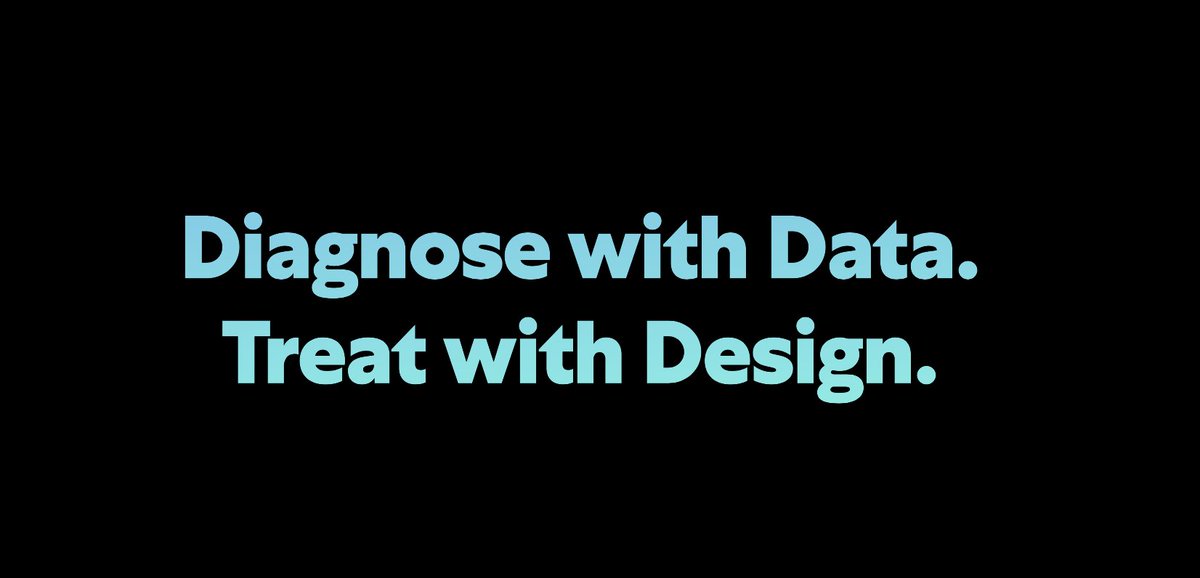
You're in a panic.
Your launch date is in a week. Your whole team's credibility is riding on your collective ability to make it happen. Leadership is Eye-of-Sauron-ing this project.
There's just one problem.
You suspect the product sucks.
What do you do? A thread 👇 (1/9)
Your launch date is in a week. Your whole team's credibility is riding on your collective ability to make it happen. Leadership is Eye-of-Sauron-ing this project.
There's just one problem.
You suspect the product sucks.
What do you do? A thread 👇 (1/9)
Prior to a launch, saying "Our product sucks" is not what your tired, overworked colleagues want to hear. But if you feel this way, you need to bring it up.
Align the team around the launch goals. Ask: "What are we aiming for?" Then frame your concern around that.
Ex... (2/9)
Align the team around the launch goals. Ask: "What are we aiming for?" Then frame your concern around that.
Ex... (2/9)
"We want to fail fast and get learnings asap" → Are we well set up to get new learnings if we already know so much is broken?
"We want to make a big splash and get tons of new users" → Will these new users retain if our product is buggy?
(3/9)
"We want to make a big splash and get tons of new users" → Will these new users retain if our product is buggy?
(3/9)
Launch should not be an event where you're at the edge of your seat about what happens.
Dip your toe in the water first.
Ask 10 users to go through your product without prompting. Watch their honest reactions. If they don't have a good experience, you're not ready.
(4/9)
Dip your toe in the water first.
Ask 10 users to go through your product without prompting. Watch their honest reactions. If they don't have a good experience, you're not ready.
(4/9)
The saying goes, choose 2/3—quality, speed, or scope.
The first two get lots of airtime while cutting scope is frequently overlooked.
If Feature X of Product Y is low-quality, cut it from the launch while continuing to improve it. Not everything needs to ship together.
(5/9)
The first two get lots of airtime while cutting scope is frequently overlooked.
If Feature X of Product Y is low-quality, cut it from the launch while continuing to improve it. Not everything needs to ship together.
(5/9)
In fact, you can even separate the "launch" announcement from the product being available to users. It's been done many times before by Apple, Tesla, FB, etc.
Don't let a "but we have the launch event planned!" persuade you to put a shitty product in front of people.
(6/9)
Don't let a "but we have the launch event planned!" persuade you to put a shitty product in front of people.
(6/9)
If you're feeling uncertain about the impact of your product but still want to learn, do a soft launch.
Put it out in one or two markets. Make it a beta.
Everything FB launches now gets tested at a small scale first (learned after many failed big-scale launches.)
(7/9)
Put it out in one or two markets. Make it a beta.
Everything FB launches now gets tested at a small scale first (learned after many failed big-scale launches.)
(7/9)
Yes, concrete dates can rally the team. Yes, setting and hitting deadlines is good discipline.
But at the end of the day, launch dates are collective fictions. Rarely will you actually die if you don't hit the line (exception is no $$$ left or winner-take-all dynamics)
(8/9)
But at the end of the day, launch dates are collective fictions. Rarely will you actually die if you don't hit the line (exception is no $$$ left or winner-take-all dynamics)
(8/9)
In the long game, building useful, great experiences is what wins you loyal customers.
If you think your product sucks, the "sucking" part is the thing that will ultimately impede your success, not your ability to hit the launch date on time.
(9/9)
If you think your product sucks, the "sucking" part is the thing that will ultimately impede your success, not your ability to hit the launch date on time.
(9/9)
• • •
Missing some Tweet in this thread? You can try to
force a refresh



